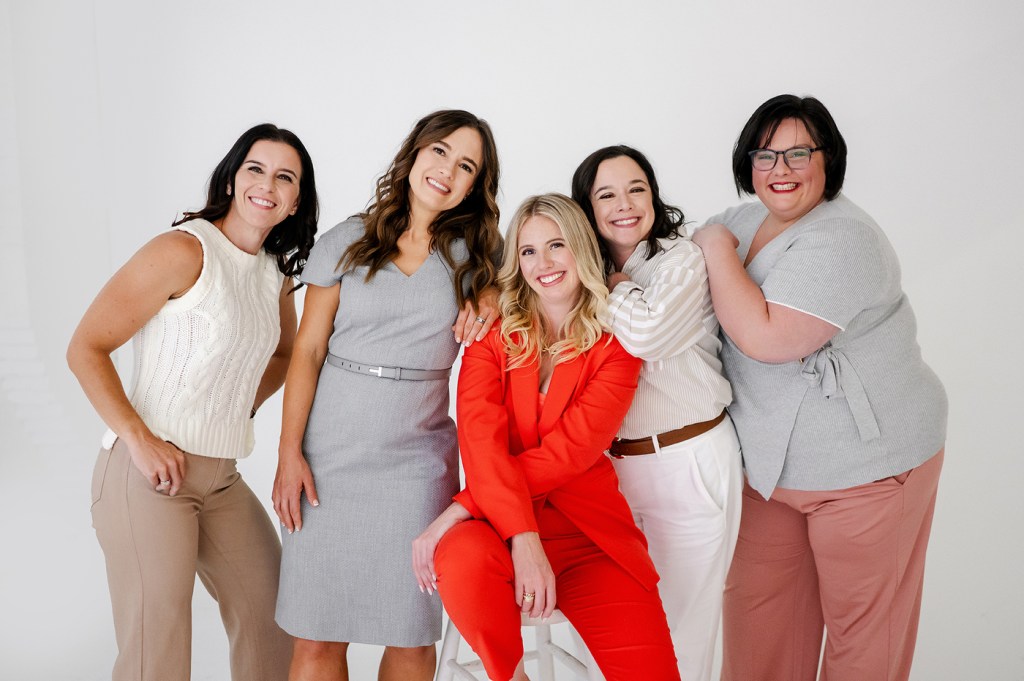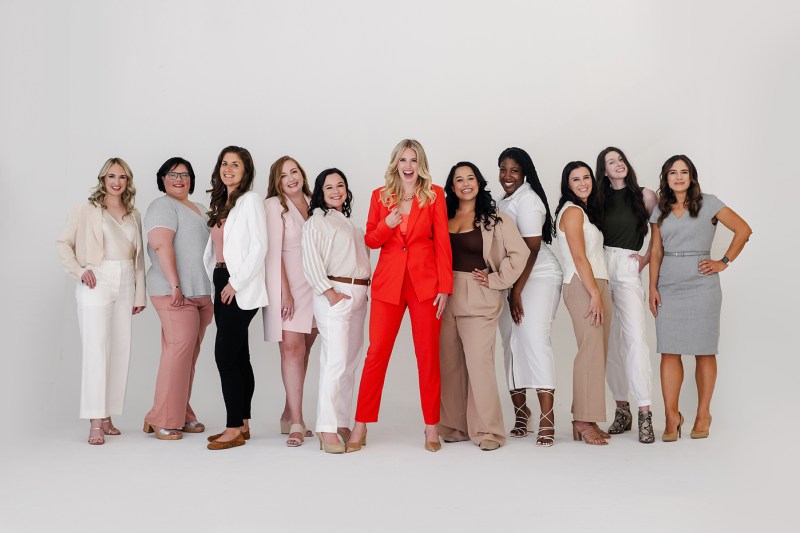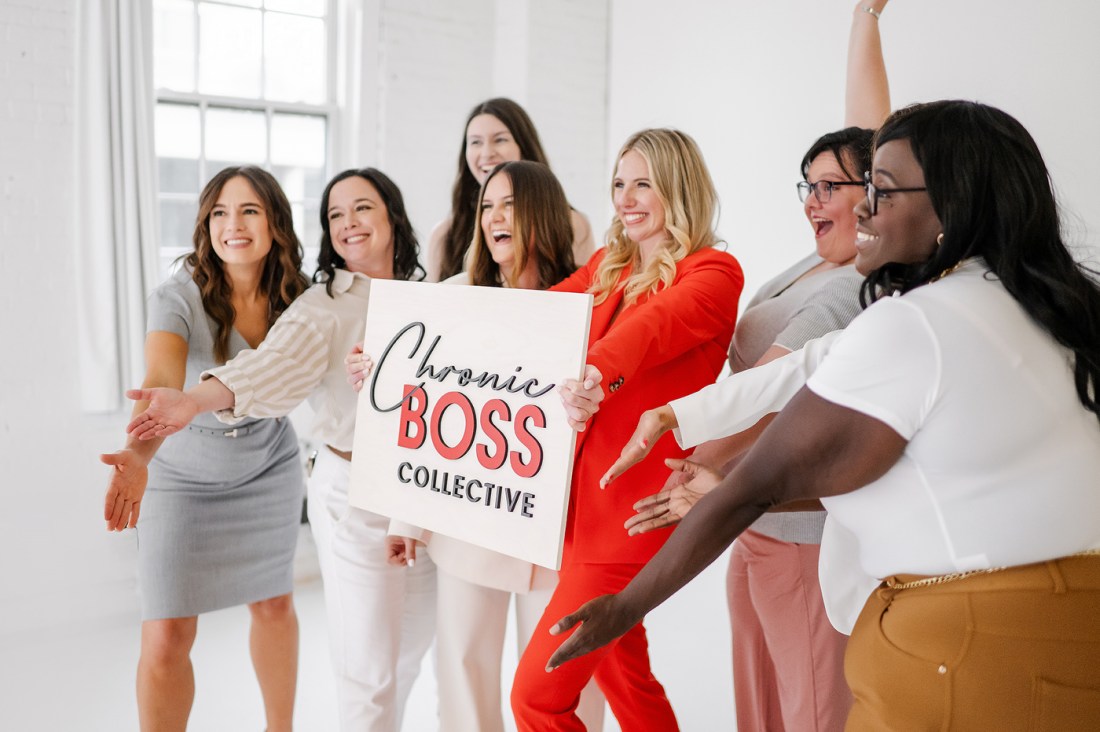Published on
Networking, hope for career women with chronic conditions
Lilly Stairs, a 2015 Northeastern graduate, launched the Chronic Boss Collective, a networking group for women with chronic conditions looking to prioritize their health and professional dreams

The summer after her freshman year at Northeastern University, Lilly Stairs was diagnosed with psoriatic arthritis, an autoimmune disease that made her body so stiff that she had to get up hours early to take a hot shower and warm up her joints before walking to class.
Later in her sophomore year, Stairs experienced excruciating stomach pain that had her in and out of the emergency room. After a few weeks in the hospital, she was diagnosed with a second autoimmune disease: Crohn’s disease.
The two diagnoses in such a short span devastated Stairs, then only 19. But she didn’t let it get in the way of her ambitions. For Stairs, who graduated from Northeastern in 2015 with a degree in communication studies, the diagnoses expanded her worldview and helped shape her career.
January marks the official launch of Stairs’ newest business endeavor: Chronic Boss Collective, the first professional membership group for women with chronic conditions. It’s the antithesis to the hustle culture where people put their health on the back burner for the sake of work. Chronic Boss Collective brings together women with chronic conditions to help them prioritize their health and their professional dreams.



A membership to Chronic Boss Collective provides access to professional development sessions on topics like building a brand and negotiating your salary. There’s also similar talks on wellness. The organization is virtual and has members across the United States and in Australia, Ireland, England and Canada. There’s an in-person chapter that’ll meet monthly in Boston.
Stairs came up with the idea for Chronic Boss Collective when working in patient advocacy. She saw many support and Facebook groups dedicated for patients to talk about their conditions, but not many groups for people interested in figuring out how to balance their goals with their health.
“I wanted a space where I could hold both things to be true, where I could be this ambitious businesswoman, and also be living with chronic conditions and honor prioritizing my health,” Stairs said. “(Chronic Boss Collective) is not a place to vent, but a solutions-oriented place for both professional growth and maintaining health.”
Learning how to navigate the working world and chronic conditions is something Stairs learned firsthand at Northeastern.
During her co-op at MassBio, Stairs was receiving infusion treatments that would leave her so spent that taking a shower could be exhausting. On top of that, she struggled with her rush-hour commute because she often couldn’t find a seat on the subway where she could sit to ease her arthritis pain. She talked to MassBio and asked if she could work during off-hours for an easier commute and on a reduced schedule. The company agreed to the accommodation, showing Stairs how she could balance work with her health.
“It was huge and so helpful for me,” Stairs said. “Many people are living with something that’s impacting the way that they show up to school, to work, to life. As we work to be a more diverse, equitable and inclusive workplace, it’s really essential that we include people who are living with chronic conditions. … There are times where I don’t need to work 9 to 5. I’m efficient, I know how to get things done. And so … I would look for somebody that wasn’t making me sit at my desk from 9 to 5. I would want them to care about what the outcome of the work was. It’s looking at where there can be flexibility, and whether a company or an employer or a professor is willing to meet you halfway.”
This outlook is something that guided Stairs through her early career. Her co-op at MassBio turned into her first full-time job after she graduated. She then went on to work in marketing and patient advocacy, channeling her experience in health care into meaningful work.
“Northeastern was so instrumental in my career,” she added. “I had a professor, Greg Goodale, (who) encouraged me to go into biotech. I said ‘I don’t even know what biotech is.’ It turns out, it’s the industry that saved my life. … My professor helped me connect the dots to find the place where I can make an impact based on my own lived experiences.”
In early 2020, Stairs took the plunge into running her own business by launching Patient Authentic, a boutique agency that teams up with health care companies to help them build events and programming to connect with patients. Through this, she was introduced to Boston networking groups and got the idea to begin her own group where she could give other women with chronic conditions advice on how to manage their health without compromising their career goals.
Editor’s Picks
“Living with a chronic condition, it’s all-consuming,” she said. “Many times, you can’t control it. You could have a really great day one day and then the next day you could be totally bedridden. It is really challenging … trying to match that up against a college schedule or a work schedule. But my advice to people is that this is possible. And it’s all about open lines of communication with professors, with bosses and being in the right company culture.”
Stairs began work on Chronic Boss Collective last year. Her idea was recognized in Northeastern University’s 2023 Women Who Empower Innovator Awards, where she placed fourth in the Innovator Award Young Undergraduate Alumnae and second in the Powering a Health Tomorrow Award.
Stairs walked away with $20,000, but more importantly, more confidence in her idea.
“Having funds to put towards bringing this to life was game-changing and it was really much-needed validation at the right time,” she said. “This journey as a solo entrepreneur can be very lonely, isolating and scary. Having the support of Northeastern and the belief that I can carry through this idea and change the lives of millions of women around the world meant a lot to me. … I do feel I am a part of a community that is there for me and is championing me and wants to see me succeed and is giving me the resources to help there.”
Chronic Boss Collective already has over a hundred members, surpassing Stairs’ goal of reaching 100 in the first year. The group already had its kickoff meeting, and Stairs is already planning ahead for the group into the next year.
“I would love to see us scale,” she said. “We’re going to work with our founding members for these first few months of the year to lock in the programming and lock in the structures and systems, and then in the spring, we are going to be ready to really scale and bring more women in to support them in building and living out the careers of their dreams while prioritizing their health. My goal is for us to reach as many women as possible, and bring them into the collective so that they can support one another in making all of that happen.”
Erin Kayata is a Northeastern Global News reporter. Email her at e.kayata@northeastern.edu. Follow her on X/Twitter @erin_kayata.










